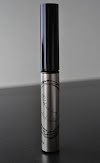
Jose here bringing you the Monday Monologue, this time taken from Elia Kazan's production of Tennessee Williams' A Streetcar Named Desire.
"Blanche, can I ask you a question?" says shy Mitch (Karl Malden) to Blanche DuBois (Vivien Leigh) during one of their dates. She says yes and he proceeds "How old are you?". With this simple question Leigh takes us on a trip down memory, and insanity, lane as she reminisces about her unsuccessful marriage to a "boy" named Allan.
When I was sixteen I made the discovery: love. All at once and much, much too completely. It was like you suddenly turned a blinding light on something that had always been half in shadow, that's how it struck the world for me."I don't understand" says Mitch, "No, neither did I" says Blanche. And one might say neither did the audiences in the 50's who were oblivious to how the actual play went. You see, Williams made no point of hiding that Blanche had been married to a gay man. "He wasn't the least effeminate looking" she says in the play "still, that thing was there".
But I was unlucky. Deluded. There was something about the boy. The nervousness, the callousness, an uncertainty and I didn't understand.
I didn't understand why this boy, who wrote poetry, didn't seem able to do anything else, lost every job, he came to me for help. I didn't know then, I didn't know anything except that I loved him unendurably.
She goes on to reveal how she ended up discovering what was his problem "in the worst of all possible ways", by discovering him being unfaithful with another man.
When the
 movie was made, the League of Decency and their strict Production Code reigned over Hollywood with a firm, prudish hand. The notion of homosexuality being mentioned in film was unthinkable (how could you talk about something that didn't"exist" back then?), this left the filmmakers and cast with a void that needed to be filled. Blanche's monologue is one of the most crucial moments in the plot and Kazan was already having trouble with other elements featured in the play which included shameless lust, domestic violence, nymphomania and rape.
movie was made, the League of Decency and their strict Production Code reigned over Hollywood with a firm, prudish hand. The notion of homosexuality being mentioned in film was unthinkable (how could you talk about something that didn't"exist" back then?), this left the filmmakers and cast with a void that needed to be filled. Blanche's monologue is one of the most crucial moments in the plot and Kazan was already having trouble with other elements featured in the play which included shameless lust, domestic violence, nymphomania and rape.Therefore Kazan had to work his way around a controversial twist that revealed key traits in the lead character without alienating audiences who had to at least try to understand her. What he does then is turn the monologue into an atmospheric confession where Blanche reveals how she "killed" her husband.
Watch how Kazan plays with light, music and setting - they are almost theatrical in their stylized expressionism - and pay special attention to how Leigh bares Blanche's soul so much that for a moment we even forget Mitch is standing right in front of her. As the Varsouviana plays in the background like a nightmarish lullaby, she travels back in time, but always conceals part of who she really is.
The Code may have been an atrocity with the arts and freedom of expression. But who needs obviousness with this kind of acting? Leigh's capacity to elicit fear, pain and hope is miraculous, but the way in which she gave audience members the liberty to choose what was Allan's problem is what makes her immortal.
Like she says "sometimes-there's God-so quickly" and her performance is proof of that.





0 Yorumlar